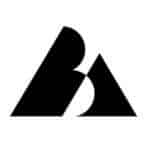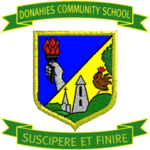There is no denying that Irish people love sports. However, until relevantly recently, many of us preferred watching physical activity to doing it. That has changed – changed utterly as WB Yeats put it. Interest in health and fitness has soared. As a result, so has the demand for personal trainers and fitness instructors.
Fitness instructors and personal trainers help their clients to get fit, tone up or lose weight. But that’s just for starters! Good personal trainers have credentials in areas such as diet, nutrition and physiology, which help them develop personalised training routines. They also act as a cross between a drill sergeant, a therapist and a cheerleader. As well as instructing clients on training techniques and exercise routines, diet and well-being, they offer encouragement, inspiration and motivation.
All personal trainers work with clients to help them fulfil their health and fitness goals. However, specialised trainers concentrate on a particular area of expertise such as weight loss, sports performance, strength training or toning and sculpting.
Why do it?
Health and fitness in Ireland is a multi-million euro industry. Personal trainers, working one-on-one with clients, or running specialised classes, can command very good salaries. To succeed you have to have a passion for working with people as well as for fitness.
Where once going to the gym was largely a solitary experience, classes lead by fitness instructors have become popular. This has increased career opportunities in the health and fitness industry. Akin Akman, the extremely popular New York-based instructor explained: “The idea of having to workout by yourself on a treadmill at a gym is becoming more archaic. People like being able to connect with others and feel like they have found a community in a class.”
Irish personal trainer Gregg Marsh agrees. “Group-training is the secret,” he says. “It’s more competitive, you’re with your peers, and the support mechanism is massive because you’re training with people who want the same thing.”
In-demand instructors like Akman become celebrities in their own right. At home, Irish fitness gurus such as Orla Hopkins, Jenni Murphy and Rob Lipsett amass thousands of followers on social media channels.
If you wish to work as a fitness instructor, you will need the proper qualifications. While the sector was once dominated by amateurs and volunteers, this is no longer the case. Qualified gym instructors, fitness leaders and personal trainers know how to set challenging but achievable goals, work with people of all levels of fitness and ability, prevent unnecessary, injuries and offer clients better results. Clients, gyms and health clubs will not work with unqualified instructors, so no matter how fit you personally may be, professional qualifications are necessary.
What does it involve?
Personal training courses qualify students as professional fitness instructors. For the most part, you don’t need experience to take a fitness instruction course. However, you will need to be physically fit and have both the desire and interest to help other people become healthy.
Programmes that offer accreditation will train you to a professionally competent level. This means you will be able to prescribe and deliver safe and effective exercise programmes.
The Certificate in Exercise and Health Fitness is the primary qualification for fitness professionals in Ireland. Participants learn to teach weights, circuits, step and body-conditioning classes. They will also study health, physiology, anatomy and nutrition.
The Higher Certificate in Exercise & Health Fitness (HCEHF) is a university accredited specialist fitness qualification award by the University of Limerick. It is a Level 6 major qualification on the Irish National Framework of Qualifications, and Level 5 on the European Qualifications Framework. The HCEHF is the highest industry standard award recognised by Europe Active, the standards body for the European health and fitness sector.
Qualified fitness trainers can take shorter courses in areas such as nutrition, eating for physical activity or advanced resistance training. These courses are for professionals who wish to increase their skill set.
At a glance
A part-time Certificate in Exercise and Health Fitness will run for around 7 months. The Certificate in Personal Training take 8 months to a year; day, evening and weekend classes are offered by many course providers. The Higher Certificate in Exercise & Health Fitness (HCEHF) is a 2 year undergraduate course.

















